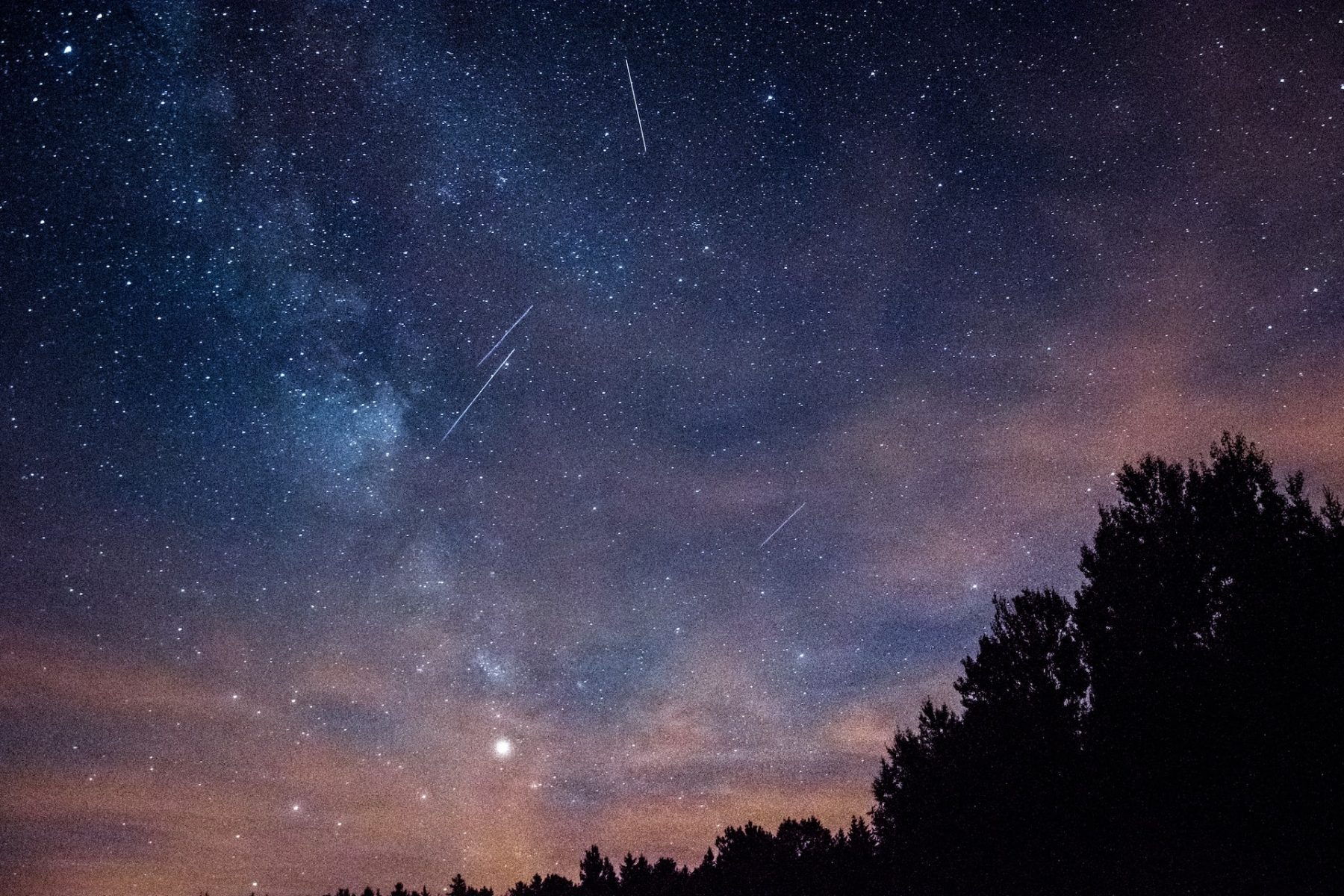While many social events in college involve nightlife, even the finest of frat parties can get a little old. If you’re searching for some glitzy entertainment without the opulence that comes from a wet T-shirt contest, look no further than the night sky. Every night of the year, the entire solar system puts on the most amazing light show, and some nights are better than others. If you haven’t taken the time to watch a meteor shower yet, put that on this semester’s bucket list.
What is a meteor shower? As our spinning blue marble hurtles through the vastness of outer space, it sometimes encounters space debris (called meteoroids before entering the Earth’s atmosphere). When this space debris hits the edges of the atmosphere, it becomes a meteor and lights up in the night sky. This is usually known as a shooting or falling star. A meteor shower is when a significant number of meteors begin hitting the Earth from one radiating point. These showers occur when the Earth moves through the pathway of a comet, with the resulting debris falling off the comet’s tail and entering the atmosphere. Most meteor showers are predictable, so you can mark your calendar ahead of time for the perfect date or night out with friends.
The key to the perfect celestial light show is to avoid light pollution and head out to the darkest place you can find. If you attend college in a big city, your best bet is to visit a national park, so you may need to travel a little. A well-placed mountain will usually block out most city lights and give you a clear view of the sky. Additionally, make sure you plan for staring at the sky. Standing with your head pointed up will cause neck pain, but a reclining camp chair, a sleeping bag or even the hood of a car will help you comfortably look up. Bring blankets and wear layered clothing because even summer nights can have breezy chills, especially out in nature.
This is an important time to talk about safety. Watching a meteor shower is not the type of outing that’s suitable for a first date. Make sure you are with someone you trust when heading out to the darkness for a cosmic light show. Always tell a trusted friend or family member where and with whom you’re going and be sure to give them the time you plan to return. Share your phone’s location with them as well. Indicate that you will call them when you get back and stick to that plan.
Make sure the location you choose is safe as well. Scout the location in the daytime to ensure it’s a safe area that’s not on private property. Even if you only plan to harmlessly watch a meteor shower, a rural homeowner will be suspicious of anyone traipsing through their land in the middle of the night.
The best time to watch a meteor shower is usually after midnight. The predawn hours are often the perfect time to watch the universe put on its best party, which is great if you are an early riser. Although meteor showers happen all year round, they usually peak in the summer. Even if there aren’t any upcoming meteor showers, stargazing is still more than worth your time. It’s best to pick a moonless night so the moon won’t reflect those pesky city lights. Be sure to turn off any car lights and tuck your phone away to allow your eyes to adjust to the darkness. Soon, stars you could never see in the city will blink into existence.
Next, you’ll notice the giant rip in the night sky: the Milky Way. The Milky Way is the galaxy that the Earth’s solar system belongs to, and the tear across the sky is the spiraled arm containing other solar systems. Philosophy majors will enjoy the existentialism of hurtling through space. If you stay still and quiet while watching the stars, you’ll begin to see what appear to be small stars traveling a little too fast: satellites orbiting the Earth. They may keep you grounded with the knowledge that even far above Earth, humans are still looking over you.
If you try chasing meteor showers and enjoy it, you should consider upgrading your nights out with a star guide, binoculars or even a telescope. Stargazing is a year-round activity with something new to see almost every month. Planets become visible at different times of the year, and you only need a decent set of binoculars to see details like Jupiter’s spot and the rings of Saturn.
By looking up at the sky you connect yourself to the numerous myths, epics and sacred stories that concern celestial themes and events. The same stars you watch were regarded by cave people, Sumerians, the Aztecs and every other human that chose to look up at some point and marvel at the vastness of the universe. The raw materials that bounce through the night sky and light up for one brief second are the same star stuff that brought the elements needed for life to this planet. Meteor showers and the rest of the cosmic light show reveal the simultaneously comforting and humbling knowledge that humanity is part of something far vaster than imaginable.

















